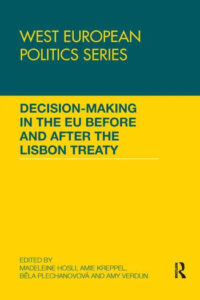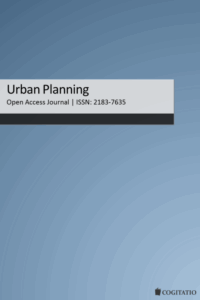This chapter focuses on effects of the Lisbon Treaty on the coherence of EU behaviour at the UN General Assembly (UNGA). It theorises the EU’s presence at the UNGA in terms of a principal–agent model wherein the EU and its entire membership are considered to constitute a collective principal while the actors playing the role of the agent have varied in different phases. It then investigates, in the light of this framework, the voting cohesion of EU member states at the UNGA between 1993 and 2012, paying particular attention to differences before and after the ratification of the Lisbon Treaty. The statistical analysis shows that EU voting cohesion has been increasing in general during the last decade, but the level of cohesion is not (yet) significantly different post-Lisbon as compared to pre-Lisbon.
Decision making in the EU before and after the Lisbon Treaty
Pre- and Post-Lisbon: European Union Voting in the United Nations General Assembly




